As preppers, we are always met with the challenge of figuring out how to get the most out everything around us.
Where one person may see a pile of trash, we are the ones that see tin cans that can be used to make solar heaters, plastic bottles to make fly catchers, or even use rubber bands to generate electricity.
Often, it is also preppers, or those interested in being as self sustaining as possible that discover “weeds” aren’t noxious, let alone a waste of lawn space. Rather, we often discover that “weeds” can treat a range of diseases or provide better nutrition that “foods” found in the supermarket.
Find out our Firefather’s Time-Tested Natural Cures and Household Remedies
Today, many people that look at this list of “deadly plants” will do everything in their power to uproot them or avoid learning more about them. If you look deeper into the benefits derived from these plants, however, you may come to feel differently about them. While it will take some time and effort to learn how to use and prepare these plants safely, it may just be worth your effort.
Hogweed
If you have been paying attention to the news over the summer, then you may have seen several stories about the dangers of giant hogweed. This plant looks a lot like Queen Anne’s Lace, only usually grows 10 – 15 feet tall with thick, heavy green stems. The stems of Giant Hogweed may also have hairs and red blotches on them. You will also find that hogweed leaves are less feathery and much bigger than those found on Queen Anne’s Lace. Even though hogweed dies back each year, it is a perennial that manages to grow bigger and stronger each year. It takes several years for the plant to make seeds.
When hogweed does make seeds, however, they are prolific and hearty. The seeds themselves are oval shaped and cream to light tan in color and can remain dormant for up to 5 years and still sprout. They will not germinate unless they have been stratified (ie. gone through a cycle of cold and then spring moisture) before appropriate temperatures for germination and growth.
Even though hogweed originated in the area between Europe and Asia, it was exported to Europe and beyond for ornamental purposes. At this time, it is considered an invasive species in the United States, Canada, and many countries in Europe. While this plant tends to favor riverbanks, it can grow just about anywhere there is enough water and light. Because the plant has few natural predators, it also easily stifles other plant that are native to the region.
Giant Hogweed is considered dangerous to humans because if your skin is exposed to the sap and light, severe irritation can occur in as little as 15 minutes. If the sap remains on your skin, it can kill off the cells and lead to extensive damage. The molecules that are responsible for this “phototoxic” reaction belong to a family of molecules known as furocoumarins[1]. Interestingly enough, a number of antibiotics, cancer fighting and cancer preventing molecules also belong in this family[2].
One of the most dangerous furocoumarins found in Giant Hogweed is Bergapten. This molecule, which is partially responsible for the skin damage caused by Giant Hogweed, is being studied as a possible treatment for breast cancer[3]. It is also being studied for use in people that have airway inflammation associated with Cystic Fibrosis[4]as well as for getting rid of whip worms and blood flukes[5]. According to a number of studies, Bergapten can cause skin cancer. Others studies, however, indicate the problem is with the group of molecules known as Psoralens, (which Bergapten is a member of[6]) as opposed to this specific molecule. Unfortunately, many people using psoralens as part of a sunscreen or in Bergamot essential oil may be increasing their risk of developing skin cancer. It is also possible that people using other psoralens for psoriasis may be exposed to the same risk[7].
Historically, according to some sources, Giant Hogweed was used to treat shingles[8]. Unfortunately, there is no information available on how to prepare the plant and use it for this or other purposes. Since other plants that are related to Giant Hogweed have both medicinal and food based properties, it is also possible that these sites are referring to plants that pose no threat to humans.
Rosary Pea
Rosary Pea or Abrus precatorius goes by many names including love pea, prayer bead, coral bead, wild licorice, and Jumbie bead. It originates in tropical climates, and has also spread in Florida and other southern states. As with Hogweed, it was spread globally because of its ornamental value is considered a noxious, invasive weed.
Insofar as appearance, this legume vine has oval shaped leaflets that grow opposite each other along a single rib. Their leaves are often referred to as “even pinnate” because the tip of the rib has two leaflets stemming from it instead of just one. The Rosary Pea plant makes smallish pink flowers that are arranged onto a stalk. After pollination, the plant makes pods that aren’t so different from those you would find on bean and pea plants. Upon maturity, the most common strains of this plant will produce bright red peas with black a black tip on one end. While there are also some Rosary Pea plants that produce different colored peas, the red ones are often said to look like ladybugs.
As beautiful as rosary peas are, they are extremely deadly to humans. If an adult or child chews even one single pea, it can cause death. Powders made from ground rosary peas are also deadly, especially if powder (abrin powder is yellow/white in color) is inhaled. Mist sprayed into the air from the peas mashed into liquid is also deadly. The main toxin found in Rosary Pea seeds is Abrin. This molecule can stop protein production by inactivating ribosomes (the organelles inside cells that make protein based on the template provided by reading RNA strands). Some of the symptoms of abrin poisoning include nausea, seizures, liver failure and vomiting. Death from consuming rosary peas can happen in a matter of days or much sooner.
Because Abrin is so deadly, it is also considered a potential target for terrorists and others looking for a cheap, relatively easy material to use in the killing of many innocent people. As such, it is very important to know more about Abrin poisoning as well as what can happen if you mishandle rosary peas.
At this time, there is no known substance that can counteract Abrin[9]. You will need to go to the hospital, where they will do what they can to keep you alive until the poison is out of your body. This may include giving you IV fluids, placing you on a respirator, and using drugs to raise blood pressure and stop seizures. Depending on the route, you can try the following first aid measures:
- If the toxin touches your skin, wash with soap and water.
- If the toxin gets into your eyes, rinse them out thoroughly with water for 15 to 30 minutes. Do not forget to wash off your glasses as well if you were wearing them at the time you suspect you were exposed to abrin powder or mist.
- When removing clothes that have come into contact with Abrin, you will need to cut them away from your body and discard them. Remember, even a small amount of this toxin getting onto you skin can cause skin irritation and other problems.
- If you swallowed abrin, try to take activated charcoal as quickly as possible[10]. Remember, liquids can leave your stomach in as little as 20 minutes depending on the other contents of your stomach and how far along they are in the digestion process. Even though activated charcoal will not neutralize the poison, it will absorb it and thus prevent less from getting into the body. Never drink fluids or induce vomiting if you suspect abrin poisoning.
Historically, and even today, rosary peas have many uses in various cultures. This includes using the peas for making bracelets and other jewelry. If you purchase or have a rosary pea bracelet, do not wear it or handle it if the skin of the peas is broken as poison can still leach from the peas. If you have an open wound and the toxin gets into your blood stream, it is possible that you will get sick from it.
Rosary pea plants have many uses that may be of use to you. Just remember that you will have to handle the peas carefully and take the time to learn how to prepare them and the plants for optimal use.
- According to some sources, the abrin found in rosary peas can be denatured and neutralized if you boil the peas[11]. A study conducted in 2017[12], however, establishes that not all the toxin is denatured, even at high temperatures. On the other hand, another study conducted in 2013 using an Ayurvedic purification process[13] called Shodhana[14] resulted in peas that were safe to consume. If you are committed to finding out how to prepare the seeds safely, it may be best to consult with a certified Ayurvedic practitioner and learn how to do the processing in that person’s presence. Unfortunately, this is one area where reading a book or watching a video is no substitute for actually working with people that prepare the seeds in real time.
- Extracts of the leaves of the rosary pea have many medicinal properties. At this time, researchers have established that leaf extracts can be used to both prevent and cure breast cancer[15].
- If there is one reason to work hard to learn how to properly prepare the leaves, roots, and peas from the Rosary Pea plant, it is the possibility that it can be used to treat tetanus and prevent rabies. Without a question, if you are concerned about a time when tetanus and rabies vaccines may not be available, this is one plant that may just save your life. At this time, information about whether or not Rosary Pea actually works to treat these problems is not readily available from modern researchers. I, and perhaps many others hope that researchers are doing studies on this question and will come up with a tangible answer sooner than later.
- There are also many other conditions that the Rosary Pea has been used to treat[16]. This includes hair loss, diabetes, edema, pink eye, asthma, headaches, malaria, and leukemia. Aside from that, Rosary Pea has also been used as an aphrodisiac. Sadly, this herb can cause miscarriages and should be avoided by pregnant women.
Oleander
Oleander is actually a very common ornamental plant that many people keep outdoors or in their homes. This plant has average sized pointy shaped flowers that tend to grow in clusters. These clusters do not form balls or spikes. Oleander leaves are dark green, long, and pointy at maturity. Younger or newer leaves will appear light green and glossy. Regardless of the leaf age, you might see them growing in pairs or sets of three. If left to grow unattended, oleander will form a bush that can easily reach 20 feet tall. It can also be grown indoors with a bit of pruning.
Before being introduced to other areas, Oleander was found primarily in the Mediterranean region, the Middle East, and parts of China. It is also found in the Sahara desert. Even though it usually grows well along river banks and dry river beds, it can also withstand long periods without water. Although Oleander is heat tolerant, it does not do well in colder temperatures unless it is well sheltered. For example, it will grow in cities such as London and Paris because the temperatures near the streets and buildings is higher than you would find in a natural setting. In the United States, Oleander grows easily in the wild in the southern states and can also grow in New England with some care. If the weather gets too cold, the plant will act like many other perennials in these regions and die back to the roots until spring arrives.
All parts of the Oleander plant are poisonous. Ingesting the leaves can cause increased salivation, nausea, abdominal pain and vomiting. If it gets into your intestines, it can also cause bloody diarrhea. Oleander also has a significant impact on heart rate and circulation. At first, heart rate will go up, and then quickly drop. The reduced circulation will make your extremities feel cold, and you are also likely to feel drowsy. Some people also wind up having seizures and tremors. If enough of the plant is consumed, it can also cause coma and death. Oleander is also very toxic if you touch the sap, which can cause extreme skin irritation. If it gets into your eyes, they will also become very irritated.
Oleander is also deadly to domesticated animals including horses and cattle. You should never allow pets or farm animals near Oleander clippings. While the leaves may have a bitter taste when they are growing, they will develop a sweet flavor as they dry out. Even a small amount of dried oleander leaves can kill horses and other farm animals within a short time.
Even though death from oleander poisoning is considered rare, it can be considerable risk if you consume the plant by accident and have no access to emergency care. The first thing you will need to do is induce vomiting to get as much of the poison out of your system as possible. If you can get to an emergency room, they will more than likely pump your stomach. After getting rid of as much poison as possible, you can also try taking activated carbon to absorb any additional toxin that will have to proceed through your digestive tract. It can take several days for the poison to leave your body. During that time, rapid and slow heart rate will be two of your biggest problems along with neurological symptoms.
It is very important to be able to recognize the oleander plant, especially when you are camping our out in the wild. Since it is a very hearty bush, it may be just the one that you go to looking for branches to roast food or use as a spear. Unfortunately, oleander is just as toxic when it is dried out. If you kill an animal or fish made with a spear from an Oleander tree, there is a chance you will be poisoned by the Oleander toxin. Smoke from burning Oleander can also be deadly. Do not use it in a fire even for heating purposes.
Since Oleander has a powerful impact on the heart, it should come as no surprise that it is used in some cultures to manage abnormal heartbeat and congestive heart failure[17]. Unfortunately, it also comes with a lot of digestive side effects that limit its use for long term needs. There is a form of Oleander extract available for use by prescription outside the United States. Anvirzel is usually given as an injection for treating congestive heart failure, HIV, and cancer[18].
Over the last few years, Oleander has also been studies for possible use in curing cancer. While it does have some promise for use in treating pancreatic, breast, and several other types of cancer[19], researchers haven’t found a viable way to get around the side effects that occur at the therapeutic level required for killing off cancer cells. Some researchers also found that Anvirzel used in combination with other chemotherapy drugs made it possible to lower the dosage of both drugs. This includes platinum based chemotherapy drugs that are very expensive and have a lot of side effects at therapeutic levels[20]. Traditionally, Oleander has also been used to treat asthma, diabetes, and upper respiratory infections[21].
If you are interested in learning how to use Oleander for medical reasons, work with a certified TCM or Ayurvedic practitioner. While there are many herbs that you can learn to use safely, others, such as Oleander leave little, if any margin for error[22]. Ideally, you should work with someone qualified to teach you how to use this herb safely for medicinal purposes. This is not a plant for beginners let alone anyone that thinks the following:
- Herbs are safer than cradle to grave drugs
- Herbs are safe because they are “natural”
- Plants are just food
- Since people have been using herbs for thousands of years using “primitive” equipment, it should be easy and safe to use them in a modern setting.
- You can learn what you need about preparing and growing herbs from a few minutes of reading online or from a book.
- If things get really bad, you can always make it to the ER in time and they can undo the damage created by using herbs in the wrong combination or at the wrong dosage
- Herbs don’t have long term side effects (such as liver, kidney, brain, heart) like cradle to grave drugs do.
Aside from some medicinal value, there are some other uses for Oleander. It can be used as an insecticide. It will also kill mice and rats. Just make sure that you keep these poisons as far away from pets and children as possible.
White Snake Root or Sanicle
This deadly plant is a member of the aster family. It grows all along the east coast of the United States and Canada, and then extends across through the central states and Texas. White snakeroot has dusky green, serrated, somewhat pear shaped leaves. Under the right conditions, this plant can grow up to 5 ft tall. At first glance, you may mistake white snakeroot for a bush because it grows in clumps; however if you look carefully, you will find that each stem is an individual plant. When in bloom, the flowers of this plant look like little white balls that have spikes pointing out. At a distance, this can give them a fuzzy appearance.
White snakeroot is a hearty plant that will grow in many settings. This includes in the woods, among brush trees, and in areas that have more sunlight. Although this plant isn’t especially light sensitive, it does prefer moist soil over dry.
As harmless as this plant may look, it is deadly to both humans and animals. In fact, if a cow consumes white snakeroot, the poison will also pass into the animal’s milk and meat. If you consume milk from the cow or eat it’s flesh, you will also consume the poison and may be killed by it. Interestingly enough, many colonists and pioneers died from “milk sickness” or tremetol poisoning before they learned they were being poisoned by secondary ingestion of white snakeroot. This includes the mother of Abraham Lincoln.
Depending on the amount of poison ingested, it can take just a few hours to several weeks before the first symptoms appear. Since tremetol is a fat soluble molecule, it can stay in the body for some time. It is thought that the amount of time required to excrete this toxin means that it builds up in the body as opposed to triggering an immediate reaction. There is also no known antidote for this poison.
In animals such as horses, cattle, and goats, white snakeroot poisoning is marked by shaking or trembles. Victims may hold their legs closer together or splay them further apart in order to remain standing. Some animals may also become constipated. If left untreated, white snakeroot poisoning will lead to coma and death.
Insofar as emergency care for animals, you can try inducing vomit if the plant was recently consumed. Follow up with charcoal to absorb as much of the toxin as possible before it gets further into the stomach. You can also try giving the animal an enema. In most cases, a veterinarian will also have to pump the animal’s stomach[23]. If the poison has been building up for a few days, and symptoms are already present, very little if anything may save the victim. White snakeroot poisoning also causes kidney damage and can also leave the victim with long term heart problems.
Humans that ingest white snakeroot directly or via contaminated milk and meat will also experience tremors. Other symptoms include a swollen, red tongue, nausea, muscle soreness, pain, vomiting, weakness, and constipation. Some people will also experience seizures. Since the main poison in White Snakeroot causes electrolyte imbalances, you may also smell something similar to acetone on the victim’s breath[24]. As with animals, humans will also go into coma and then die if not treated in time.
As with other plants listed in this article, White Snakeroot also has some medicinal value. Unfortunately, most of the resources detailing how to use this plant went out of print in the 1800’s. You can also look into newer research emerging on medicinal plants to see how extracts from White Snakeroot are being used. Since this plant isn’t as popular as many found in Ayurveda or TCM, it may be a few more years before anyone looks seriously at this herb.
Speaking of herbs from other cultures, White Snakeroot should not be confused with Indian Snakeroot. While White Snakeroot was, and may still be used by Native Americans, it is not the same plant as referenced in Ayurvedic and TCM herbal remedies. The scientific name for White Snakeroot is Ageratina altissima, while Indian Snakeroot is Rauvolfia serpentina.
Indian Snakeroot, or Devil Pepper, is considered a fundamental healing herb and has many molecules in it of value. This includes Reserpine, which has been used for centuries to treat high blood pressure and schizophrenia. Unfortunately, many resources that list only “snakeroot” do not provide the scientific name of the plant they are talking about let alone a description of what it looks like. Before you conclude that White Snakeroot is useful for any given medicinal purpose, it is best to start off by making sure you are talking about the right plant as opposed to one with a similar name or appearance.
In the meantime, you can put White Snakeroot to good use and help nature at the same time. As you may be aware, bees, butterflies, and other insect pollinators are declining at an alarming rate. If there is one thing you can, and should do if you have any kind of yard space or outdoor growing area, it would be growing at least some plants that attract wild bees. In this case, White Snakeroot is useful because it attracts all kinds of bees and butterflies. It is also very hearty and makes flowers deep into the fall season. If you live in an area where other flowers have already died back, this flower may just help the bees put enough honey aside to get through the winter.
If you are interested in starting a hive of wild bees, luring larger numbers of bees may also mean a young queen that needs to leave the original hive may start one near your yard. Remember, bees are like any other creature. As they propagate and look for new areas, they will settle where they have the proper resources to live comfortably and safely.
At this time, there are no cases of white snakeroot poisoning occurring from bees that used pollen from this plant to make honey. Nevertheless, you may want to consult bee keepers in your local area to see if they have direct experience with using honey derived from White Snakeroot. If you don’t feel comfortable using honey from this source, you can still use the flowers to lure stray queens, and then put them in a hive where they have other flower sources to use.
Castor Bean
Castor Bean is another plant that made its way around the world because of its ornamental value. Under the right circumstances, Castor Bean bushes can reach almost 40 feet tall. They can also make beautiful, hearty house plants when trimmed back and maintained properly. Because this plant is grown for multiple purposes, you may need to do some research before selecting a strain to grow for survival purposes.
While the plants may look a bit different from each other, they share a few traits. First, the leaves tend to be glossy green with narrow, saw toothed extensions that join together in groups of 5 – 12 lobes. Castor bean plants make a spike that produces flowers that have something of a ball shape. Even though they are not dried out, the flowers often remind me of burrs, only in different colors including red and yellow. The seed pods will have barbs on it, however the seed within is smooth and dark brown in color with some mottling.
Castor bean plants originally grew in India, the Mediterranean, and Eastern Africa. Even though it is a tropical plant, it can grow outdoors as an annual as far north as Canada. In New England and some other areas, it will grow as an annual that reaches several feet in height before dieing back. It is also a prolific house plant that is hearty and easy to grow.
When it comes to deadly plants, castor bean ranks number one in the world because just a few raw seeds can kill an adult human. The seeds of the castor been plant also contain Ricin. As with the Abrin found in Rosary Peas, there is no antidote for Ricin poisoning. Because Castor Plants are common and easy to grow in most parts of the world, Ricin is considered a target of interest for those interested in committing acts of terrorism[25]. If you have an allergy to this plant, the sap can cause skin rashes. In addition, if you inhale the pollen, it can trigger asthma attacks and other breathing problems.
In terms of historical uses, castor bean plants have been used for over 4000 years in Egypt to make everything from lamp oil to body and hair oils. Castor bean plants have also been used extensively in China and India for various medical purposes. Since these plants must be harvested and managed with care, it is best to work with a certified Ayurvedic or Traditional Chinese Medicine practitioner in order to learn the best and safest procedures. As deadly as castor bean seeds are, the plant itself has many uses that cannot be easily substituted by using other plants. In fact, in many parts of the world, including the United States, Castor Bean plants are considered an important crop that touches many industries. Here are just a few ways to use castor bean plants that should be of interest to every prepper:
- Castor bean oil makes an excellent lubricant for machinery. Historically it has been used to lubricate airplane parts as well as automobile engines. In a time of need where it may not be possible to obtain motor oil, this may be the one plant that can keep everything from farm equipment to automobiles in operating condition. Even though castor bean oil breaks down faster than modern synthetic oils, it will be better than nothing in a time of need.
- Castor bean leaves can be used as a cheap food for silkworms. If you have an interest in textiles, then silk is bound to be of interest. No matter how bad times may be, you can rest assured that fine fabric such as silk will be the kind of commodity that you can leverage for barter and trade.
- Aside from being useful as an insecticide, growing castor bean can also remove several pesticides from the soil. This includes DDT, Heptachlor, and Aldrin[26]. Some studies also indicate that castor bean can take up arsenic from the soil. Even though the plant may grow a bit slower in heavily contaminated areas, it can still help remove this deadly toxin. Therefore, if you own property that has been contaminated by pesticide or arsenic, or need to live off land that has been contaminated, this plant may help you clean up the soil.
As a closing note on Castor Bean plants, some municipalities make it illegal to own or grow Castor Bean[27] even though there is no federal law related to this plant. Because Castor Bean is already a commercial crop and can be used to produce everything from medicine to lubricating oil; it should be something that anyone can grow regardless of its poisonous nature. If you live in an area where it is not legal to grow Castor Bean, do not hesitate to find out who passed these laws and what political party they belong to. From there, it is very important to investigate all individuals from that party in order to expose anything that might be cause to have them removed from office. It is also very important to gather petitions and get active in making sure that this law is changed.
Without a question, if you are concerned about what other rights will be taken away once gun rights are fully stripped, then you have only to look at problems associated with growing and owning Castor Bean plants in some municipalities that also happen to have strict gun control laws. Just as an aside, we are seeing yet again, in places like gun controlled Nigeria, that terrorists groups like Boko Haram won’t stop getting guns (or castor bean plants if it is of interest to them) just because a law says they can’t have them. As I write this, three unarmed and unprotected-by-guns female Red Cross workers are about to be tortured to death by Boko Haram. While they may not be using castor bean plants in their disgusting plans, the fact remains gun control and related psychobabble intimidation tactics made it easy for Boko Haram to kidnap and detain these women, and will most certainly cause them a very painful and highly exploitable death. In a similar way, making castor bean plants illegal to own and grow can pose just as much danger to crisis survivors in a time when this plant may be needed to make a wide range of life saving products. Unfortunately, if you do not learn how to grow handle deadly plants such as Castor Bean now, a major social collapse or other crisis situation is one of the worst places to start learning. As with guns, this is one place where laws depriving you of access and education now can have severe consequences later on.
It is also important to realize there are some serious legal ramifications associated with outlawing plants and seeds. Do not forget that, like any other seed, Castor Bean seeds are small. As a result, when there are laws on the books that say it is illegal to own them, it makes it possible for warrants to be issued looking for something extremely small. This, in turn, means that a “reasonable search” under the 4th Amendment can entail scouring every square millimeter of your home with impunity.
Stinging Nettle or Common Nettle
Stinging Nettle (Urtica dioica) may look a bit like Finger Rot (also called Bull or Texas Nettle), however they are two very different plants. In fact, the latter is not even a true nettle. When it comes to deadly but useful plants, you will find that stinging nettle is one of the most valuable to preppers.
The plant itself is native to North America, Asia, Northern Africa, and Europe. It prefers meadows and wet environments as opposed to drier regions. In cold weather, it will die back to the roots, and then come back when the weather warms up. Stinging nettle also propagates easily by seed. If you are interested in growing this plant, you will find that the seeds germinate quickly and well. They will also grow easily indoors and produce robust plants.
In the wild, stinging nettle can easily reach 7 feet tall, and will produce prolific amounts of leaves and flowers. The leaves are somewhat long and pointy with deep veins. They also have sharp hairs or “nettles” that give the plant its name. You will also find sharper, thicker barbs along the stem of the plant.
If you brush against stinging nettle plants, the barbs will easily get through your skin. The leaves also contain a number of chemicals that will produce skin irritation. Interestingly enough, if you grab stinging nettle leaves, you may avoid being “stung” by the barbs because they will crush under the weight of your hand. Nevertheless, if you are working around stinging nettle plants, it is best to wear heavy gloves. Based on personal experience with growing stinging nettle, even young plants with just a few leaves can have barbs that can easily pierce the skin.
Worldwide, there are easily dozens to hundreds of uses for stinging nettle. If there is one versatile toxic plant that every prepper should learn to handle, stinging nettle is it. Once you know how to manage basic medicinal herbs such as garlic, parsley, lavender, and marshmallow root, stinging nettle is an ideal introduction to plants that involve both high risk and high benefits. Here are just a few ways to use stinging nettle:
- Stinging nettle is a vitamin and protein rich food source. You will need to soak the leaves in water as part of the process of getting rid of the toxins and the barbs.
- Medicinally speaking, stinging nettle is a proven remedy for benign prostate hyperplasia (BPH)[28]. It is also being studied for use against rheumatoid arthritis, seasonal allergies and for its anti-inflammatory[29] properties[30]. There is also some evidence that it can be used to treat a number of bacterial infections including staph and E.coli[31]. As with many other deadly plants listed in this article, you can find out more about historical medicinal uses for this plant via Ayurvedic and TCM practitioners.
- The fiber used in nettle stems can be used to make fabric. In some areas, nettle is being considered as a replacement for cotton because it requires less care and is easier to grow. No doubt, many people are also considering the uses for the leaves and other parts of the plant that aren’t used in making textiles.
- Stinging nettle flowers are also an important food source for bees, butterflies, and other pollinating insects. Needless to say, if you want to protect your outdoor garden from invaders and predators, stinging nettle can help you achieve this goal and attract valuable pollinators at the same time.
When you turn on the news and hear about deadly and invasive plants, it is all too easy to conclude that there is nothing more to say.
No matter whether you have become afraid of hogweed, stinging nettle, or even castor bean plants lurking in your yard and home, the fact remains all these plants have their uses. While these plants can be deadly when not handled properly or used irresponsibly, there is also a great deal of benefit associated with growing and using them. Rather than trying to eradicate these plants or making laws against them, perhaps it is much better for our society and our world to learn how to manage these plants and put them to good use instead.
Resources
[1] https://www.compoundchem.com/2017/08/03/gianthogweed/
[2] https://www.sciencedirect.com/science/article/pii/S1021949816301843
[3] https://www.ncbi.nlm.nih.gov/pmc/articles/PMC4498523/
[4] https://openi.nlm.nih.gov/detailedresult.php?img=PMC3095539_1471-2091-12-15-5&req=4
[5] https://www.ncbi.nlm.nih.gov/pmc/articles/PMC5004179/
[6] https://www.ncbi.nlm.nih.gov/pmc/articles/PMC4345801/
[7] https://pubchem.ncbi.nlm.nih.gov/compound/Bergapten
[8] https://herbpathy.com/Uses-and-Benefits-of-Giant-Hogweed-Cid537
[8] https://emergency.cdc.gov/agent/abrin/basics/facts.asp
[10] https://www.ncbi.nlm.nih.gov/pmc/articles/PMC2672262/
[11] http://www.inchem.org/documents/pims/plant/abruspre.htm#SectionTitle:3.3%20The%20toxin%28s%29
[12] https://www.ncbi.nlm.nih.gov/pmc/articles/PMC5666367/
[13] https://www.ncbi.nlm.nih.gov/pubmed/26283803
[14] https://www.ncbi.nlm.nih.gov/pmc/articles/PMC3737451/
[15] https://www.ncbi.nlm.nih.gov/pmc/articles/PMC3597168/
[16] https://www.ncbi.nlm.nih.gov/pmc/articles/PMC4025349/
[17] https://www.ncbi.nlm.nih.gov/pmc/articles/PMC3841991/
[18] https://www.mskcc.org/cancer-care/integrative-medicine/herbs/oleandrin
[19] https://www.ncbi.nlm.nih.gov/pmc/articles/PMC4387257/
[20] https://www.ncbi.nlm.nih.gov/pmc/articles/PMC3637172/
[21] https://www.ncbi.nlm.nih.gov/pmc/articles/PMC4127823/
[22] https://www.ncbi.nlm.nih.gov/pmc/articles/PMC5056662/
[23] http://www.pawsdogdaycare.com/toxic-and-non-toxic-plants/white-snakeroot
[24] https://www.sciencedirect.com/topics/agricultural-and-biological-sciences/ageratina-altissima
[25] https://www.ncbi.nlm.nih.gov/pmc/articles/PMC3210461/
[26] https://www.ncbi.nlm.nih.gov/pmc/articles/PMC4537713/
[27] https://www.hunker.com/12330185/castor-bean-plant-laws
[28] https://www.ncbi.nlm.nih.gov/pubmed/21806658
[29] https://www.ncbi.nlm.nih.gov/pubmed/23092723
[30] https://www.ncbi.nlm.nih.gov/pubmed/19140159
[31] https://www.ncbi.nlm.nih.gov/pmc/articles/PMC4302403/


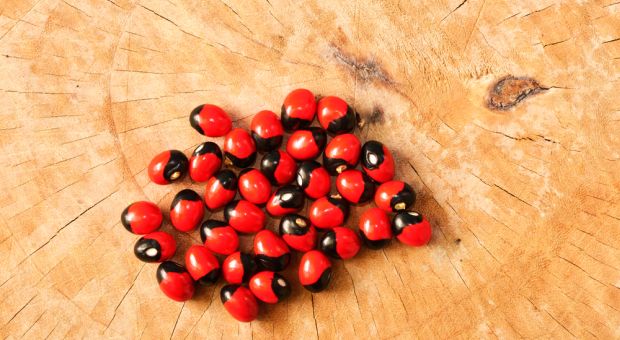
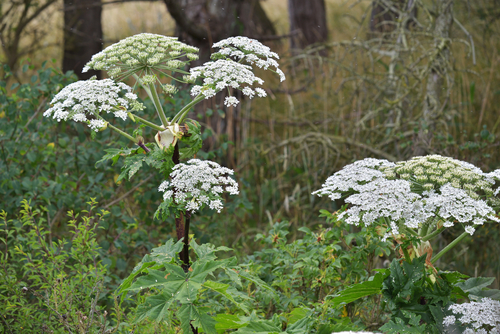
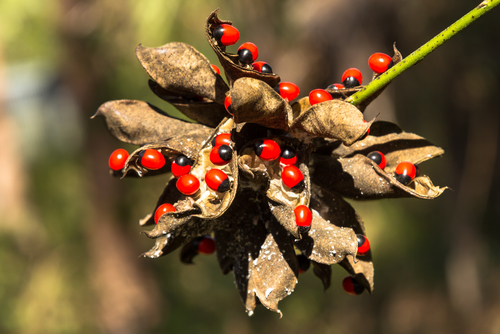
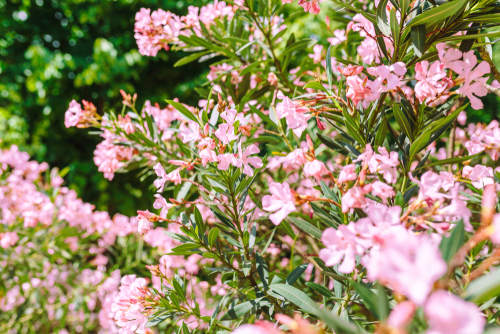
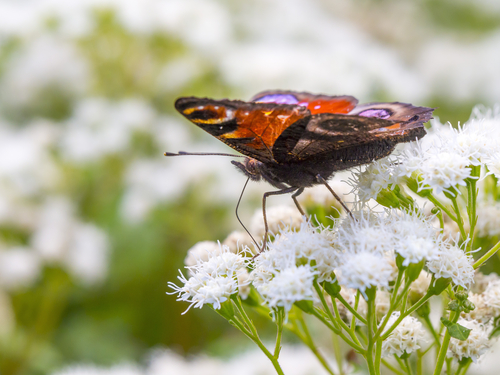
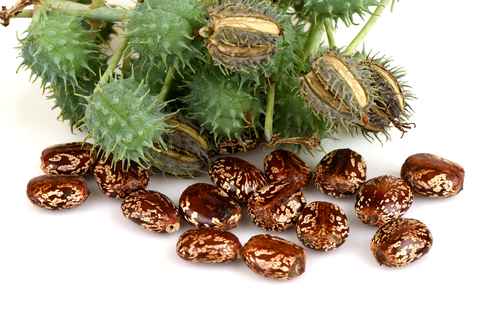
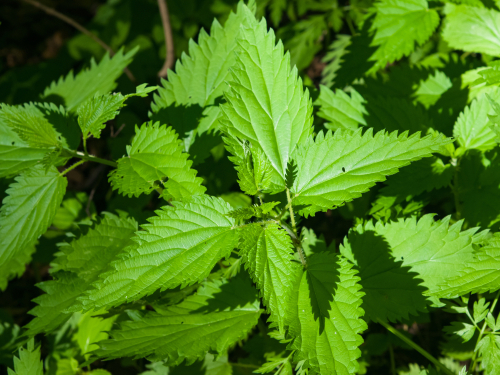


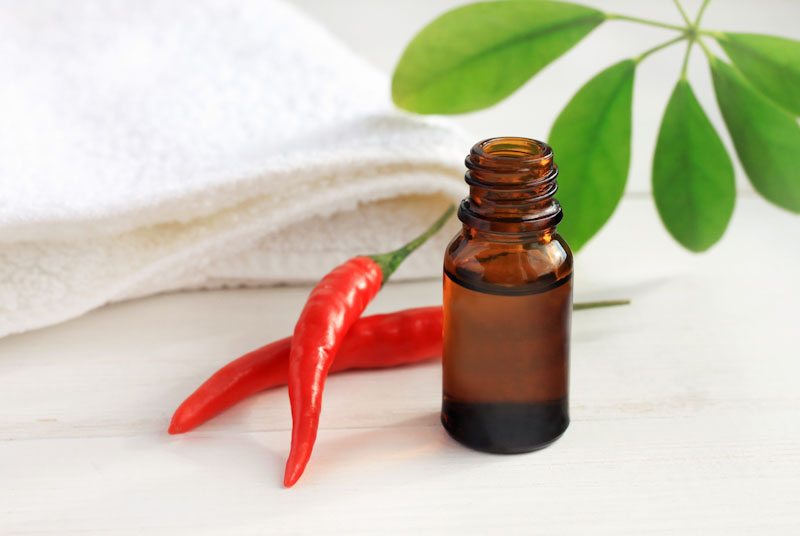
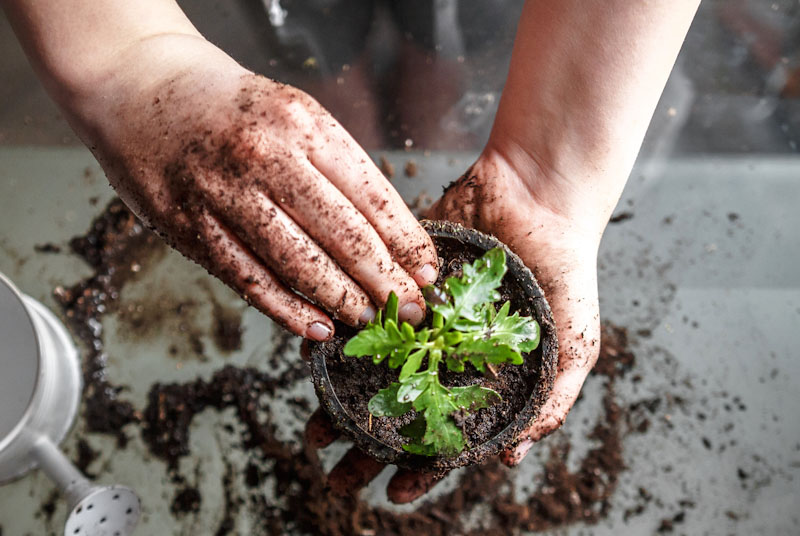
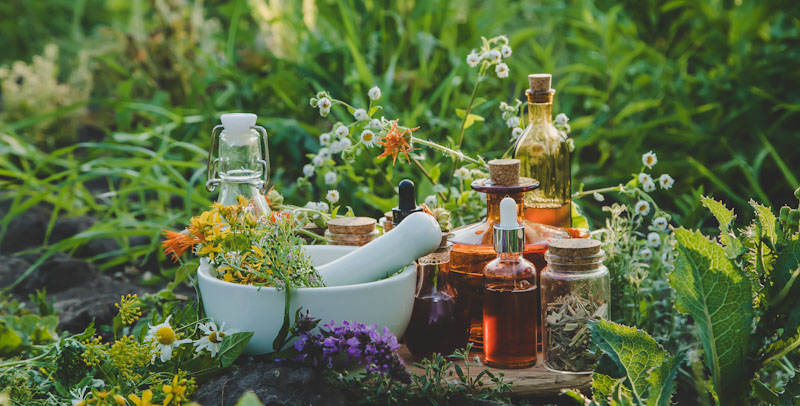

Jerry D Young | November 5, 2018
|
Wow!
This article, which is the first I have read of yours, as far as I can remember, has put you into the top ten list of people that I admire.
This single article also puts you in the very small group of people I consider to be the core group that will, through their work, and ability and willingness to share the results, be a major reason that people are able to survive what is coming, and to rebuild civilization and society more easily, more safely, and more quickly, with far less suffering and anguish than would result without this information.
Thank you. I will be looking for additional articles from you with great anticipation.
This is fact, not the opinions I usually give.
Jerry D Young
Bill in Idaho | November 6, 2018
|
THANK YOU, Carmela ! This is a Truly Valuable Article. I already grow and knew something about Castor Beans and Stinging Nettle – But you Have Added to my knowledge base. I will Recommend this Article to All who can benefit from it – and that is Most Everyone. Take Care, and Thanks Again.
cyberrifles | November 9, 2018
|
If you crush up Rosary Pea into a powder and place in a container, you could blow it into a persons face and you would have a version of the KGB cyanide spray gun.
red | December 24, 2018
|
A lot of people eat stinging nettles. Wer gloves and steam them. One recipe calls for butter, garlic and oatmeal. After eating it a few times, you become immune to it. It’s also a great source of hay..Stems should be crushed to help dry-down. Drying destroys any toxins. But, I moved back to Arizona and we have oleander. This nasty weed attracts kissing bugs, which carry some ugly diseases, but when gardening, dried stems are bars against animals invading the garden. Even quail, something that loves all those seeds you plant, will not scratch thru it. Bad part is, it never seems to deacy, but can be used in hugelkultur gardens. Castor bean oil, man, wow. Feed some to a drunk cowboy and watch them squirting from both ends, and even the ‘hands will stay sober a long, long time… Nope, never used it. I always sobered up a day early and was designated driver back to home.
Pingback:Useful Wild Edibles And Non-Edibles | Survival A.D.I.C.T. | Survival Life, Skills & Gear Reviews | December 8, 2019
|